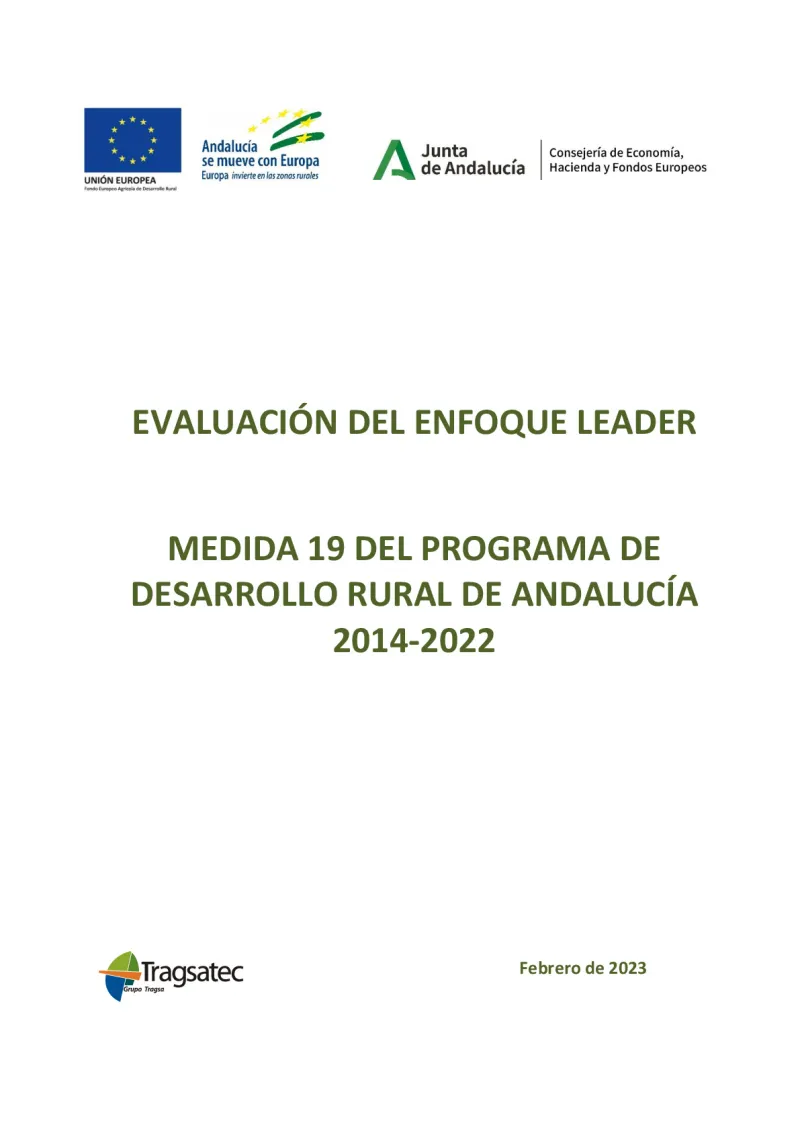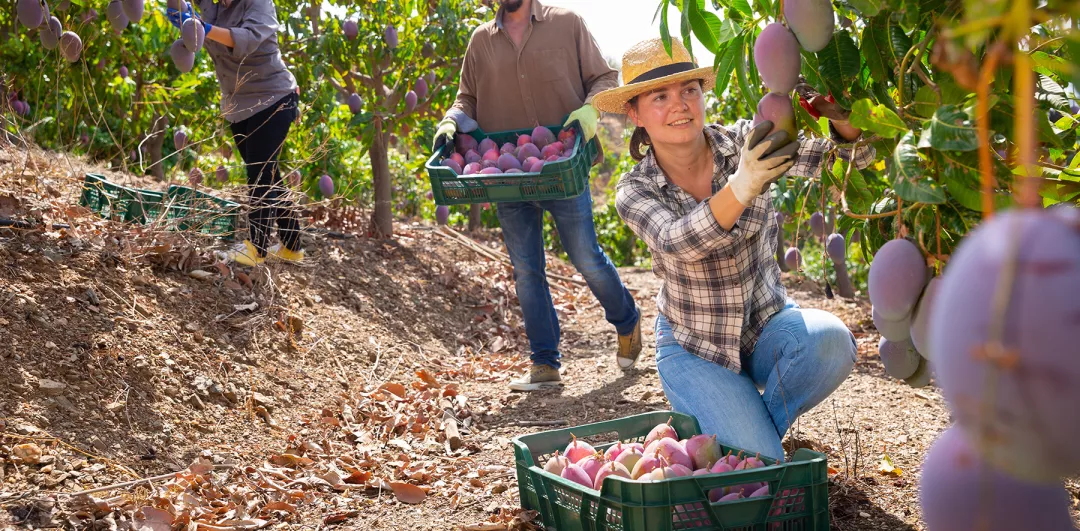Evaluation of the LEADER approach in Andalusia
The report focuses on how LEADER interventions supported local development in rural areas of Andalucia, during the 2014-2020 Rural Development Programme (RDP), and how LAGs are prepared to carry out management tasks and support the region.
- Spain
- 2014-2022
- Cross-cutting impacts


The evaluation covers the 2015-2021 period of Andalusia's RDP and focuses on LEADER and Measure 19 through two evaluation questions:
- To what extent have LEADER interventions supported local development in rural areas by improving the quality of life of the population, enhancing economic diversity and job creation, highlighting the environmental approach?
- To what extent have LAGs adequate training to carry out management tasks and support the region, considering their key role in networking, cooperation and partnerships?
The methodology used combines documentary analysis and fieldwork research, specifically: analysis of the data provided by managers of Measure 19 and LAGs of Andalusia; surveys and interviews of LAGs from the Association for Rural Development of Andalusia and different representatives of public and private entities of each Local Development Strategy (LDS), the managers of the sub-measures of Measure 19; and a case study on LAGs cooperation projects. For each evaluation question, three judgment criteria have been analysed, for instance, LEADER’s interventions have favoured the improvement of the quality of life of the rural population, including environmental aspects; LEADER’s interventions have contributed to the maintenance and creation of jobs including the environmental approach; the training of LAGs is suitable for the exercise of their functions of management, animation and revitalisation; cooperation and networking have been promoted.
The evaluation matrix collects a pool of contextual, quantitative and qualitative indicators (CMEF indicators as well as more specific indicators developed for the analysis) in order to show the extent to which the effectiveness and efficiency of LEADER are being achieved at the regional level.
The evaluation has identified some challenges, including the lack of homogeneity in the content of LDS and quantitative data and a limited number of beneficiaries (less than 50%) reached during fieldwork. In addition, the assessment report does not cover the full period of LEADER implementation (until 2022) as it was carried out with data available as of 31 December 2021.
The evaluation found, among other things, that LEADER has contributed positively to the development of economic activities in rural areas.
Regarding employment, LEADER led to the creation and maintenance of 2 048 jobs. These jobs have quantitatively favoured the inclusion of women and young people from the territory. Furthermore, many of the projects have an environmental approach that is shown through the sustainable use of natural resources or by including respectful practices in their environment, which means that much of the created and maintained employment can be considered as green employment.
These data are in line with the results obtained in the analysis of the evolution of the context carried out, which shows an improvement in socio-economic indicators throughout Andalusia and LEADER rural areas, in particular.
Organisational difficulties have led to delays in the approval of the LDS (mid-2017), which in turn has led to delays in the launch of project calls. Furthermore, external factors such as COVID-19 and the crisis in Ukraine have slowed down private investment and influenced the results obtained at the level of withdrawals and waivers.
Nevertheless, the achievements reached in relation to the number of projects and amounts committed (EUR 82.94 million) and implemented (EUR 33.3 million) are considered positive, although not optimal.
Changes and adaptations have been proposed during the programming period, aimed at redirecting the LAG towards a greater dedication to the animation and revitalisation of the territory. In some cases, they will be launched in the next programming period (2023-2027).
Finally, the cooperation carried out, although with good results, has been allocated mostly between LAGs of Andalusia, followed by interterritorial cooperation (12%) and transnational cooperation (4%). In relation to cooperation and networking, the work done by the Spanish Directorate-General for Industries, Innovation and Agri-Food Chain (DG IICA) with young people and rural women, showed good results and has become a reference point at the regional and national levels. The evaluation was first published in Spain in 2023.
Author(s)
Tragsatec